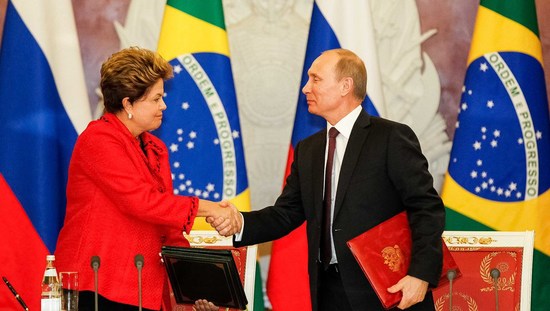https://www.files.ethz.ch/isn/180529/65655a04cd21b64dbcc9c8a823a8e736.pdf
Oliver Stuenkel , 27 May 2014
Emerging powers frequently stress the importance of sovereignty and the inviolability of international law. As a consequence, many Western observers expected that emerging powers such as Brazil would be quick to condemn Russia’s annexation of Crimea. Yet Brazil remained neutral and abstained from the UN General Assembly resolution that criticised Russia. Together with the other BRICS countries, it opposed suggestions to exclude Russia from the G-20, thus markedly reducing the effectiveness of Western attempts to isolate President Putin. Brazil’s unwillingness to criticise Russia may have less to do with its opinion on Russia’s annexation of Crimea per se and more to do with Brasília’s scepticism of Western attempts to turn Russia into an international pariah. From Brasilia’s perspective, pushing countries against the wall is rarely the most constructive approach. In addition, many in Brazil are wary of a global order that privileges the U.S. and allows it to flout many norms that apply to everyone else, arguing that these double standards are far more damaging to international order than any Russian policy. Finally, Russia annexed Crimea at a time when anti-Americanism around the world still runs high as a consequence of the NSA spying scandals, making alignment with U.S. positions politically costly at home. Download full article.
Read more:
BRICS undermine Western attempt to isolate Russia
What is Russia’s role in the BRICS?
Russia lays out its vision for the BRICS – others should, too
Photo credit: Roberto Stuckert Filho/ Presidência da República










